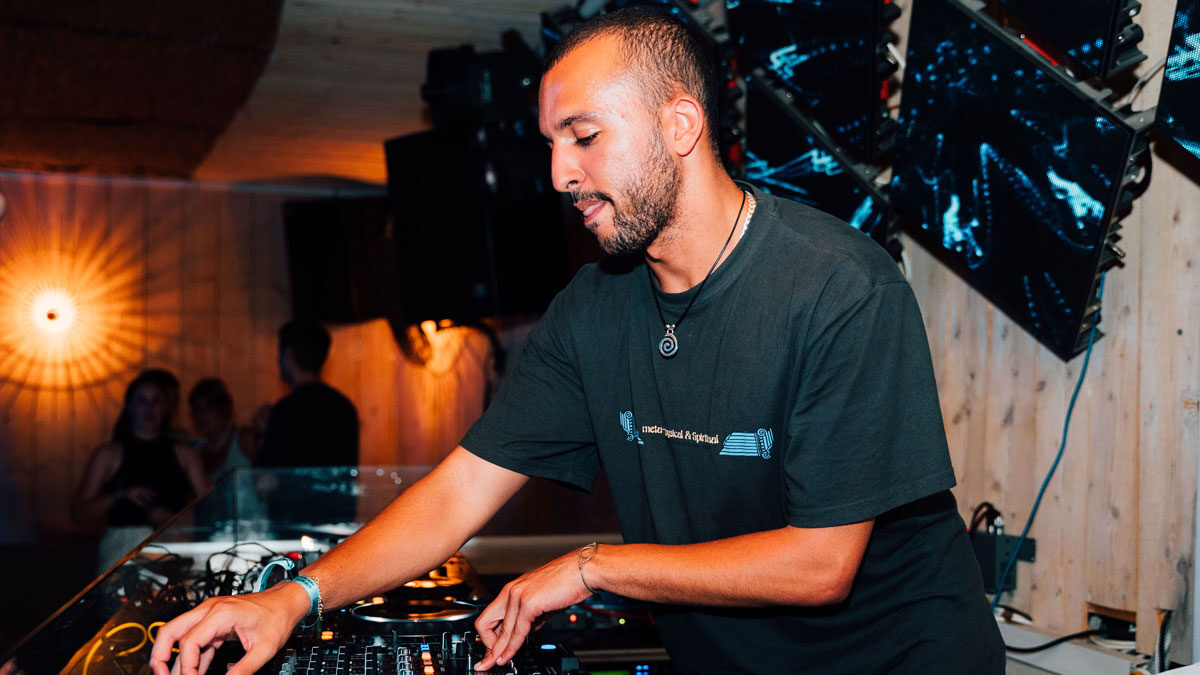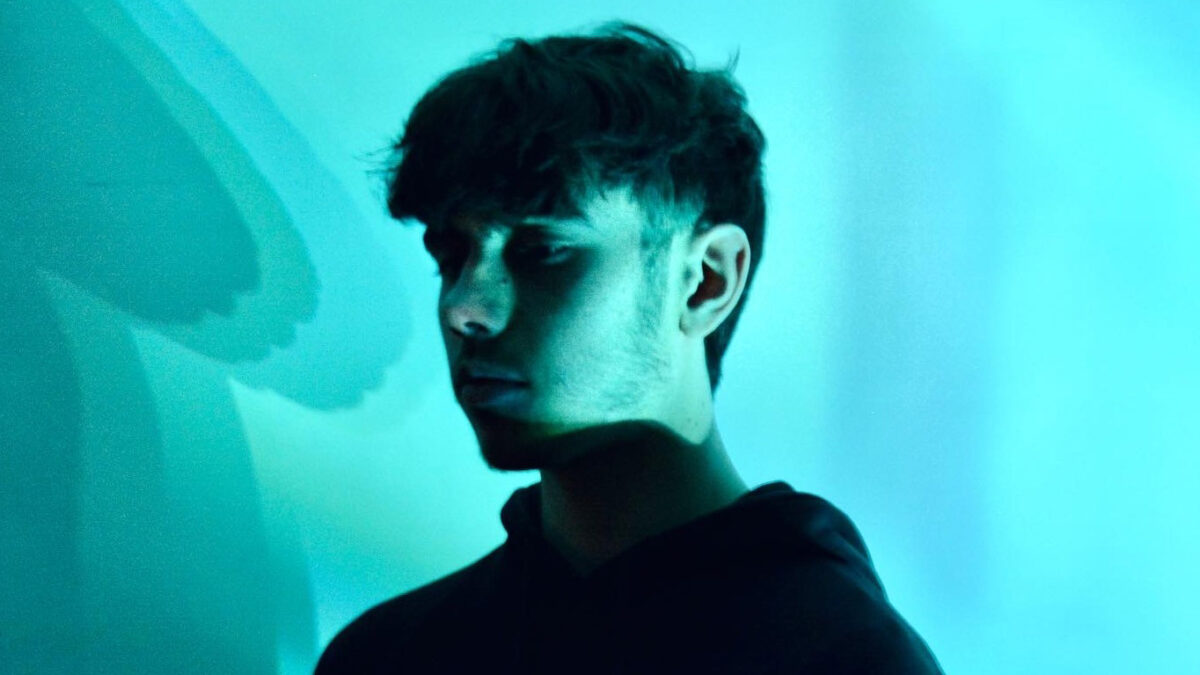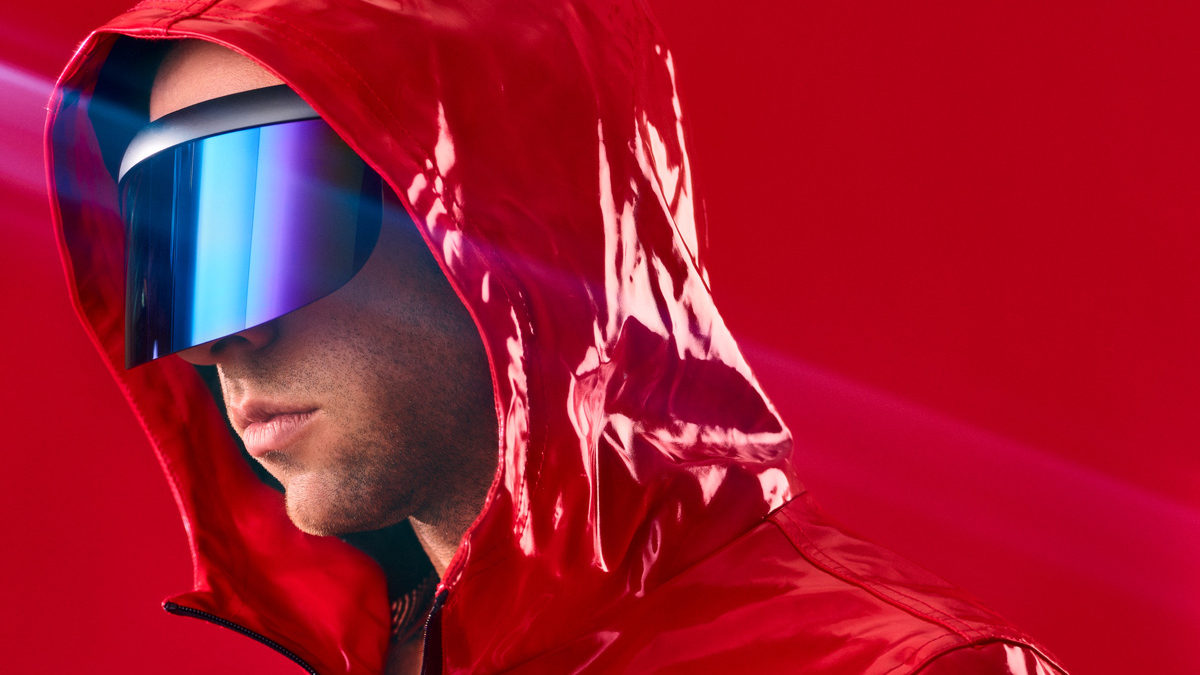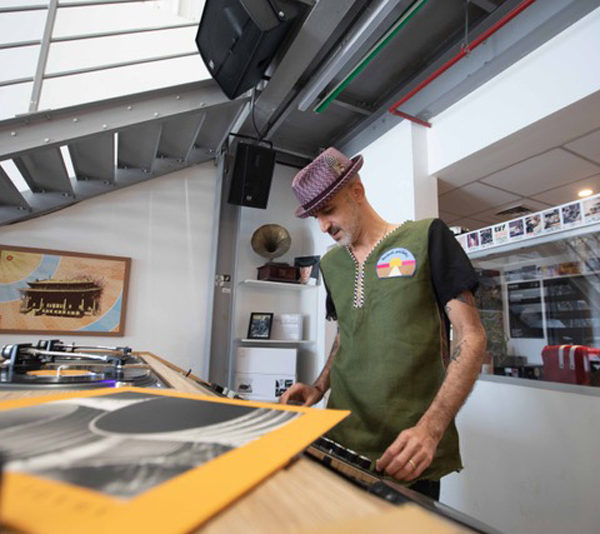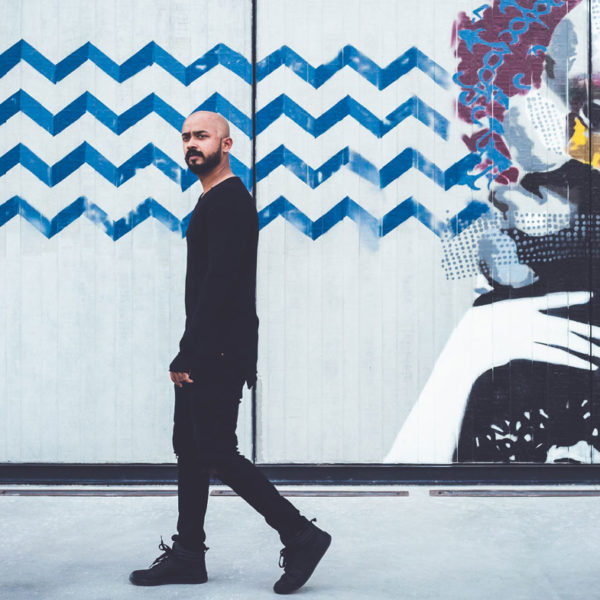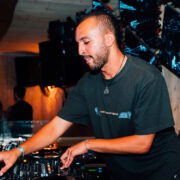You don’t interview Fed Conti, aka Italian psychedelic, genre-bending artist PROGedia. Instead, you sit back, listen and take in the magical story of his life. Like a river rolling downstream, his oratory ebbs and flows. It meanders, sometimes branching off into a distributary channel, his mind jumping from one aspect of his life to another. The stories may be abstract and disjointed but they’re connected by the presence of the man telling them.
There are tales of Ulysses, Italy’s answer to Detroit, The Doors, La Dolce Vita, John Coltrane, prog rock, Talk Talk and the enduring influence of his father. His mind is always whirring at 100mph. And then he returns to Frank Zappa.
“He said that the label owners and the executive producers producing all these bizarre records in the ’60s had no idea they were being weird,” explains Conti, expounding how he came to this point in his career. “They were experimenting. They wanted to see if people were going to buy these records. I don’t know, maybe this could be an interesting question for an anthropologist. But people were very open-minded to listen to bizarre things. Even commercial psychedelia like The Doors.”
Beguiling Trip
PROGedia, you see, is the culmination of Fed Conti’s long and winding musical journey. It’s a beguiling trip that starts with Conti as a jazz prodigy, takes in a producer for hire, an electronic musician, writing music for adverts (Coca Cola one such client), a DJ, veering towards dubstep, house and electro, releases as Mahjong and Nardis, before embracing techno in 2015 and finally meeting Renaat from seminal dance music label R&S, the imprint he now calls home.
“I switched so many genres,” he laughs from his studio just outside his home city of Turin, where’s he’s surrounded by old keyboards and banks of modern equipment. “I was always looking for a home.”
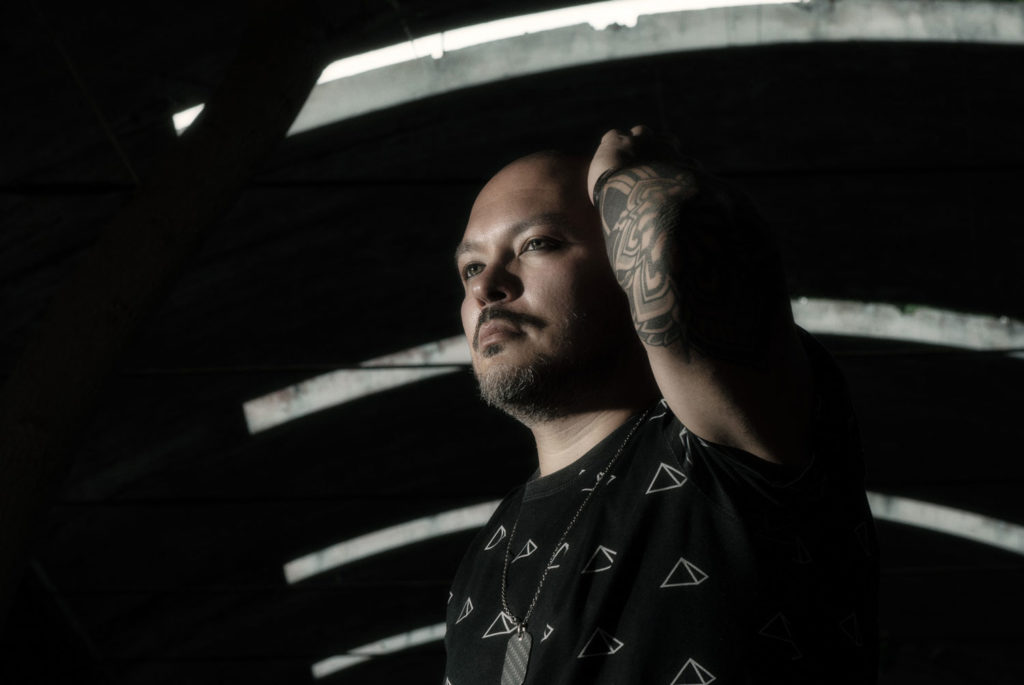
Boom
Conti talks a lot about his roots – both musical and personal. As the home of auto manufacturer Fiat, Turin, he explains, is the Italian Detroit. “Everything was centred around Fiat,” he says. His mother moved to Turin from Sardinia when she was a child as her parents looked to take advantage of the economic boom.
By the ’90s, however, this growth was over. The city reinvented itself, transforming into a cultural hub. It was into this era that Conti first cut his musical teeth. “I became a slave to the music, aged 15 or 16,” he recollects. “My parents wanted me to make money. Music was the only way to escape a reality that I never accepted.”
Young Federico played a lot of blues and jazz. He played with Americans from the old school – from the ’50s, ’60s and ’70s. “Those that played with Miles,” he says, the awe still apparent all this time later.
His musical influences stretch back to the decades before he was born. The ’60s, the ’70s, the era of Conti’s beloved Hammond organ, rock and jazz blending, “Miles playing a distorted Fender Rhodes”, Herbie Hancock… Listening to Conti reveal the music that matters to him, and why, is as intoxicating as listening to the music itself. And if you’re not aware of the music that he touts as influences, his roots, it makes you want to go and discover it quick smart.
“PROGedia is all about roots,” he expands. “My roots magically blended together after a ground zero. And the roots are both the passions of the genres I love, plus all the commercial approaches I had to do. Even with the most commercial stuff I did, it always made me curious and enthusiastic.”
Jazziness
The journey to PROGedia was both a struggle and enlightening. His dad always wanted a jazz musician for a son – someone he could say to his friends plays with people that played with Miles. Trying to fit in was stressful. “It wasn’t freedom” he remembers. “It was all about playing how other people wanted me to. ‘Play like Jimmy Smith’, they would say.”
Conti calls this the ‘”jazziness” – the notion, popular in Italy, that jazz musicians should toil for years and pay their dues before finding success. An apprenticeship, of sorts. A sacrifice. And then his dad – a character who looms large over Conti’s roots, his journey, his personality – abruptly switched sides. “My dad finally said, ‘F**k the jazziness’. You have to make money. Why don’t you start to produce?’”
Conti’s father emerges as a colourful character in the story. His father made money from gambling – “the technological side” – was a national rifle champion having shot rabbits and chickens as a child, and loved discotheques. “He looked like Don Johnson in Miami Vice,” says Conti. “He did business at the club dressed like Don Johnson with a 347 Magnum on him. Once he was dancing on the dancefloor and lost a pistol. It was kind of normal in Italy in the ’70s and ’80s.”
His dad supported him, though, recognising his son’s talent. “My bizarreness, my weirdness came alive in the music. It chimed. I found a home.”
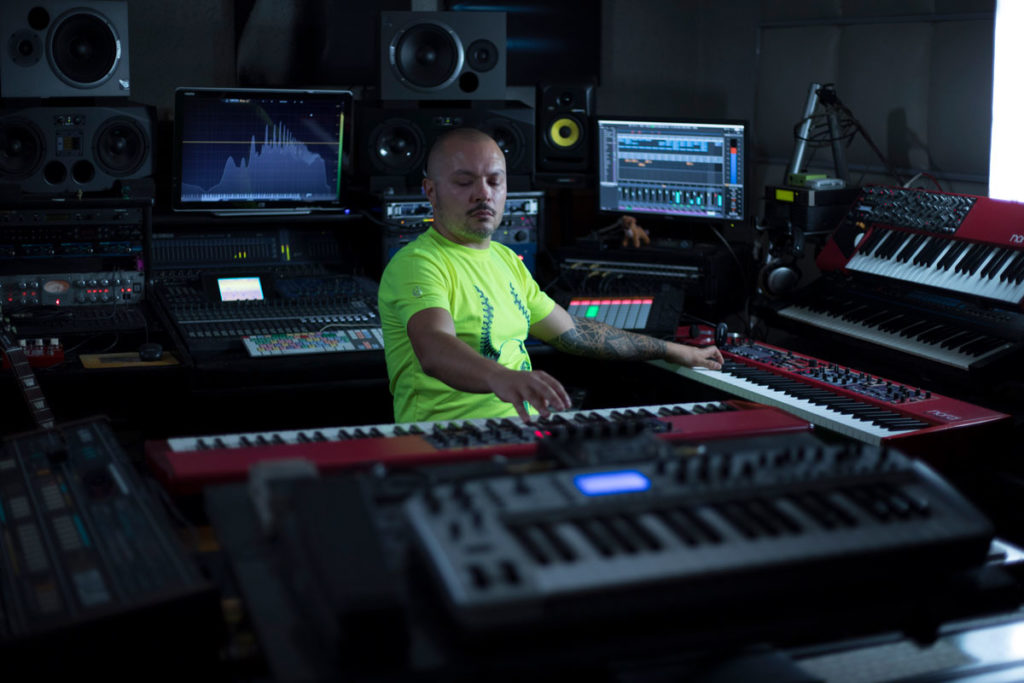
Pure Version
Which brings us, circuitously, to PROGedia. “PROGedia is the first pure version of myself,” he explains.
The name is a self-deprecating joke. It began as a title track and then seemed to fit the new music Conti was concocting during lockdown last year. “I was defining to myself my own story made of a progressive – literally and musically – journey, where I suddenly felt like Ulysses in that nice theatrical tragedy. So the PROG of musical experimentation and the tragedy – the tragedia – of life.
Having crossed paths with R&S co-founder Renaat Vandepapeliere in 2015, it took years of cajoling and encouragement from the label chief before Conti finally hit upon music Renaat wanted to release. Music that Renaat innately understood was Conti’s soul.
“Renaat is the first person to understand my combinations – the contradictions included – and really give me the security I’ve never had before to be an artist,” he says. “And not a musician- or producer-only, which are different things.”
Artistic Manifesto
The first we’ll hear of PROGedia’s artistic manifesto is We Are The Night. Released 5 November, it’s a hypnotic slice of Krautrock-meets-dream pop that sees Conti in full auteur mode. It sounds like Eno reinventing himself as DJ Shadow while the ghost of acid jazz plays in the background. The release comes replete with mixes by renowned British producer Charles Webster.
Waiting in the wings is second single Down, which showcases another side to PROGedia. A blisteringly insistent piece of Balearic industrial pop, it hints at Nitzer Ebb, Front 242 and Nine Inch Nails, while retaining a vision all of its own. Oakenfold would have probably played it at Spectrum back in 1988.
Conti is thankful to Renaat for pushing him. It’s as if the man behind influential records by the likes of Aphex Twin, CJ Bolland, Joey Beltram and Capricorn, plus latter-day releases from James Black and Radioslave, saw something in Conti that he himself didn’t recognise or had denied.
Yin and Yang
“R&S is the first time that all the s**t I have been talking about is not applicable,” he says. “It’s not total freedom because you have to limit yourself, but it’s all about the journey. It’s a kind of drug, PROGedia. I have been testing this music. This music is also made with a yin and a yang approach. My life is yin and yang – see the contradictions with my father. Be a jazz musician but make electronic music. Yin and yang of frequencies – there are harmonies and there’s discordancy too.”
With an album, Dióscuri, due early next year, the story of PROGedia is set up nicely. It’s a story that’s been 30 years in the making, but also one that has only just begun. There’s more to come. More to unravel. To be continued…
Also read: 10 Good Reasons to Hear Tim Green DJing at Escape

